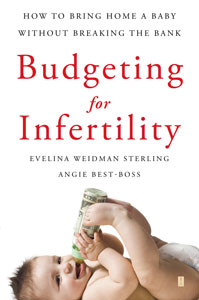The week of July 20 is Healthy Pregnancy Week at DietsInReview.com.
Evelina Sterling, PhD is the CEO and co-founder of My Fertility Plan, an innovative consulting firm dedicated to providing patients with the information and tools they need to take control of their fertility. She is also the co-author of several best-selling and award-winning consumer health books focusing on reproductive health, including Budgeting for Infertility: How to Bring Home a Baby without Breaking the Bank, Having Your Baby through Egg Donation, and Living with PCOS.
One of the biggest barriers to getting pregnant is weight. While obesity is a known risk factor for ovulation problems, new research is shedding light that weight issues actually contribute to a variety of infertility issues in both men and women.
Unfortunately, it is not completely clear exactly how obesity affects fertility. It is a complex relationship that we are just beginning to understand. Still, the bottom line is the more you weigh, the less fertile you are. Most likely, the added pounds disrupt normal hormone production and prevent successful ovulation among women. For men, it can result in fewer and less quality sperm. In any case, the chances for fertilization are significantly lowered. And if both partners in a couple are overweight, they are even more likely to have to wait longer before conceiving a child.
Just how much is too much weight? A “normal” BMI is usually somewhere between 18.5 and 24.9. An overweight BMI is considered to be 25 to 29.9 and anything over 30 is considered obese. Both men and women with BMIs of over 30 have the most trouble achieving a pregnancy. Women with a BMI of over 35 are 25% less likely to become pregnant, and women with a BMI of over 40 are about 43% less likely to conceive.
For many people, getting pregnant is much harder than they ever imagined. One important thing you can do right now to help increase your chances of getting pregnant as soon as possible is to watch your weight through proper nutrition and exercise. On average (among those with a BMI of 25 or more), for every 2.2 pounds of weight gained, you can expect an extra 2.84 days of waiting time to get pregnant. And for every 2.2 pounds of weight lost, the waiting time to pregnancy is reduced by an average of 5.5 days. Now that seems like a very good investment—not only for your overall health, but also for your baby-making potential!
Guest Blog Series: Look for the following badge on your favorite health sites to see if they have been a featured guest blogger on DietsInReview.com. See other posts in the Guest Blog series.
If you would like to apply to be featured as a guest blogger, please contact us.


